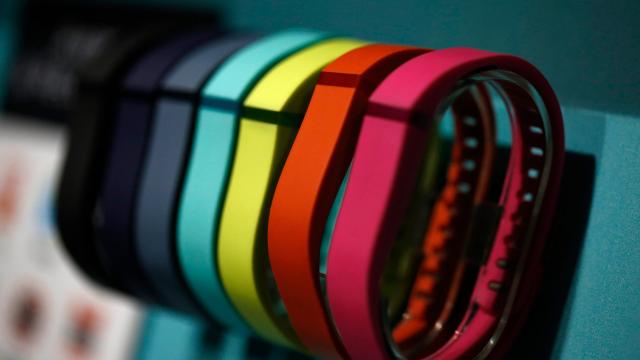It looks like the fitness tracker fad may finally be coming to an end. After years of being the dominant health-tracking gadget, Fitbit is bracing for major headwinds as it marches into the holiday season.
Image: Getty
The company reported its third-quarter earnings on Wednesday, and although revenue was up 23 per cent, the company’s stock plummeted more than 30 per cent in 10 minutes due to a dismal outlook for the fourth quarter. The company announced it expects sales to grow a measly two to five per cent from last year in the fourth quarter (compared to 94 per cent a full year prior).
Fitbit’s underwhelming outlook comes in the wake of several scientific studies showing long-term health benefits of fitness trackers are questionable, at best. In one recent study, researchers from the University of Pittsburgh discovered fitness trackers did not help kids lose weight over a two-year period. The study monitored 470 people on a low-kilojoule diet who were asked to start exercising more frequently. Those who wore fitness trackers reported less weight loss than those who didn’t wear a fitness tracker. Lead research John Jakicic explained in an NPR interview it’s probably because those who used the fitness trackers were willing to eat more after reaching their activity goal.
In another study from Duke-National University of Singapore Medical School, researchers found that fitness trackers did not increase the number of steps people walked in the short-term, and more importantly, trackers did not improve health in the long term. “The device was abandoned because inactive people did not need a screen to tell them what they already knew,” lead researcher Eric Finkelstein said in an interview with the school’s independent newspaper the Duke Chronicle.
The reason fitness trackers are regularly falling short in scientific studies might be related to the fact that you don’t need much more than your own body and about 1.8 cubic metres of space to start working out. The other important details is that the number of steps you take has very little to do with your overall health. As Deadspin writer Hamilton Nolan aptly pointed out in a recent article, “Running is one small planet in an entire galaxy of exercise,” meaning there are so many other activities that are important to fitness that can’t be logged by a silly step counter.
The other issue is that fitness trackers that only log steps have been relying on shaky science. Although some studies have shown health benefits to taking more than 10,000 steps per day, it’s generally because moving is better than living a sedentary life. People should actually be doing more than taking a few thousand steps, though. The Center for Disease Control and Prevention recommends two hours and 30 minutes of “moderate-intensity aerobic activity” in addition to “muscle-strengthening activities” on two or more days a week.
Does that sound like a lot of work? It should! Fitness is supposed to be a pain in the arse. It’s blood, sweat, tears and agony. It’s running farther than you did last time, not because a rubber bracelet told you to do it, but because you can, and you’re willing to push yourself. Fitbits and other trackers might not die this holiday season, but I wouldn’t be surprised if they go extinct soon. The science – and now financial projections – have not been on their side.
